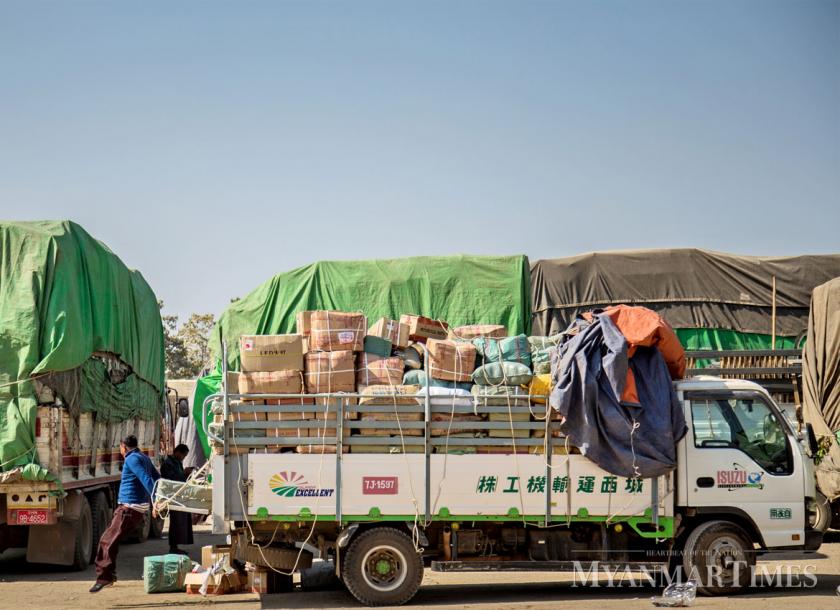Myanmar authorities temporarily suspended re-exports of sugar and diesel since the cash flows involved are huge enough to influence the exchange rate
23 สิงหาคม 2561
The spike in the exchange rate between the US dollar and Myanmar kyat appears to have tapered after the Ministry of Commerce (MOC) on August 17 temporarily suspended re-exports of sugar and diesel.
“We suspended re-exports of sugar and diesel because the cash flows involved are huge enough to influence the exchange rate,” said U Yan Naing Tun, director general of the Directorate of Trade under the MOC.
As a result, the local currency appears to be fighting back against the dollar. On August 20, it was trading at K1,500 per dollar compared to a peak of K1,560 this month.
During an August 19 interview, U Bo Bo Nge, deputy governor of the Central Bank of Myanmar (CBM) told The Myanmar Times that “pressure on the kyat had eased after we suspended the re-exports.”
The move has also been well-received by traders. “The government halting re-export activities is a good sign and as the harvest season for domestic sugarcane is coming up in November and December, the corresponding increase in the price of sugar is good news for local farmers, who will be able to fetch a better price for locally produced sugar,” one trader said.
The export price of local sugar to China has already increased since the suspension commenced last week. According to the Myanmar Sugarcane & Sugar Related Manufacturers & Traders Company, the price of a tonne of sugar has increased 8.5 percent to RMB3,800 from RMB3,500 before and is still increasing.
So far, sugar re-export license holders have exported three out of the eight tonnes stockpiled for that purpose, according to the MOC.
Re-export system
The government in 2015 permitted the import of commodities such as sugar and diesel from Thailand and India for the purpose of re-exporting to meet high demand and boost local export income.
However, the imports result in large quantities of foreign exchange (forex) leaving the country. Meanwhile, the corresponding inflow of forex upon re-export does not match the outflow. Among the reasons for this is most traders who re-export sugar and diesel to China keep their receipts in renminbi accounts across the border.
Similarly, Myanmar expends dollars when importing oil from Singapore. However, when reselling to China via Yangon, delays often take place at the border and the inflow of foreign currency into Myanmar is often poorly recorded.
Legal route
Another reason why forex outflows exceed inflows is the lack of official money transfer avenues available to traders. “In the re-export business, it is common for forex to leave the country via unofficial or illegal routes,” one merchant said.
“The current system to check whether all the money received from re-exports has gone through the banks is weak. We need a better system under which all money transfers should be made via telegraphic transfer or letter of credit,” he added.
“An official route for official cash flows should be enforced so that more data can be obtained and illegal cash flows can be controlled,” the merchant said.
So, if and when the re-exports resume, a legal system for currency flows is required to keep the exchange rate more stable.
(The Myanmar Times: https://www.mmtimes.com/news/kyat-rebounds-after-re-export-activities-suspended.html )











